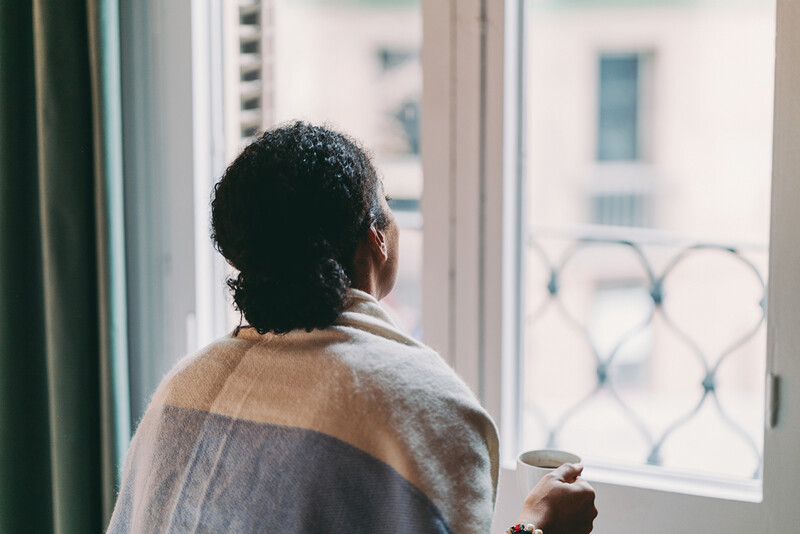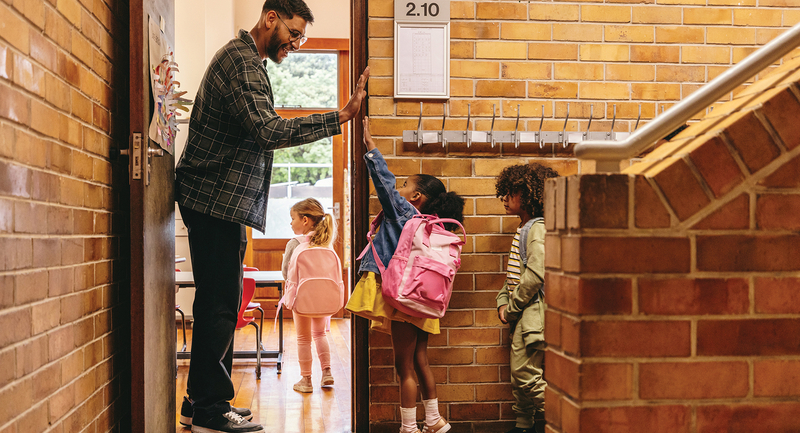December 1, 2020
•
5 min (est.)•
Vol. 78•
No. 4Confronting Inequity / Honoring Black Educators' Right to Heal and Thrive
Schools need to affirm Black identities always, not just when it's trendy.

I write these words a week after the Breonna Taylor verdict and two days after the first presidential debate, where I watched President Trump uphold white supremacy. I wish I could let these events slide off me, but they haunt, they nag, and they remind me yet again that Black lives do not matter. Other wounds of 2020 already fester—George Floyd's public execution, Ahmaud Arbery's last run, the disproportionate number of Black people impacted by COVID-19, and on and on.
Last week, a white man wrote me an email starting with, "I trust you are well." I responded, "These days, I don't think we can trust that anyone is well, especially Black women. I am not well. We are not well."
When schools shut down last spring, Black educators not only worried about how we would become virtual instructors overnight, but we also mourned Black death and police brutality. We agonized over our safety in a country that seems to care only about Black productivity and labor. Still, we tucked our pain into our pockets and pushed through like we always do. We smiled during video meetings with colleagues and students when all we wanted to do was cry. We served on antiracism committees. We stayed up late to learn new virtual engagement programs. We wrote lessons. We recommended books to white colleagues who had recently discovered racism. We bit our tongues. We taught. We led schools and districts. We fumbled. We failed. We succeeded.
This fall, already battered and broken by constant reminders of anti-Blackness, we showed up again—this time to virtual and hybrid-modeled schools, even after antiracist instruction was deemed "unpatriotic" by some, even after some families complained that saying "Black Lives Matter" was "too political." Despite it all, we showed up. We always show up. Because we know our work is critical to Black youth in white-dominated school systems. Because we want a better, antiracist future. Because we know the power of teaching and learning in creating that future—even if it comes at a cost.
But we are exhausted.
Black scholar and poet Audre Lorde once said, "Caring for myself is not self-indulgence, it is self-preservation, and that is an act of political warfare." She wrote these words after being diagnosed with cancer twice and denied medical leave from the academic institution where she worked. The context of her words, coupled with the health disparities heightened recently by COVID-19, highlights that care has not been equitably distributed. As it pertains to Black educators, this itself is an equity issue for schools.
There is a paucity of research that explores the unique well-being of Black educators, but what I can tell you from my experience is that when I returned home to the Bronx to become a teacher, I carried my own traumas into my classroom. Then I inherited those of my students. I spent nights tossing and turning about what more I could do for my students. I never once wondered what more I could do for myself. I was perpetually tired and often sick from trying to do too much, from trying to be someone else's savior.
Back then, I didn't know the dangers of saviorism or the importance of self-care, and I burned out. I now know that none of us can do anything well if we are unwell. If we have nothing left of ourselves, what do we have to offer?
After experiencing a traumatic event recently, I had no choice but to focus on my self-care no matter how self-indulgent it felt. As part of my healing journey, I incorporated exercise, journaling, therapy, and meditation back into my life. I connected with friends and family virtually and committed to getting more sleep. I also started setting boundaries to protect my time, energy, and spirit. And I am healing, but I still have a long way to go before I feel whole again.
This pandemic has cemented for me that self-care must be part of our Black liberation, especially in a world where, as Black poet Lucille Clifton writes, we have to "celebrate / with [her] that everyday / something has tried to kill [her] / and has failed." Indeed, every day, something is trying to kill us—the microaggressions, the discrimination, the harassment, the anti-Black racism, the police, and, and, and. To counteract these daily injuries, we must honor our minds, bodies, and spirits so that we can nurture those of our students, especially our Black students, who are struggling, too. We have to stop believing that our work, our exertion, is our only worth, a lie told to us by an economic system founded on whiteness, founded on Black stolen labor.
Yet while self-care is necessary and recommended, it is not enough. We could set all the boundaries in the world, take all the exercise classes, sleep for all the hours, eat all the right foods, see the best therapists, and still be unwell. Why? Because many of us work in school systems and environments that undo all our good self-work with performative antiracism racism, toxicity, and hostility.
In the absence of literature on Black teachers' mental health specifically, I want to share the findings of a 2019 Teach Plus and Education Trust report, which revealed that teachers of color: (1) experience antagonistic school cultures; (2) feel undervalued; (3) are deprived of agency and autonomy; (4) navigate unfavorable work conditions; and (5) bear the high costs of being a teacher of color.
As a result of these obstacles, Black educators are always having to heal new wounds, getting caught up in a vicious cycle of obsessive self-care strategies to treat systemic problems. We need school systems to take better care of us so that we are not always in desperate need of repair at the end of each school day. We need school systems that do not spirit-murder us. We need school systems to give us the time and resources to learn, plan, create, and reflect for superior instruction and relationship building with students. We need the space to heal when the world reminds us yet again of its disregard for Black life. We need practices, policies, and structures that build in care for educators, especially Black educators, who already carry the burden of living in an anti-Black world. We need to be valued, respected, heard, and affirmed.
Above all, we need school systems to start this work by asking us what we need to thrive, to feel safe, and to be whole.
School systems cannot solve for antiracism if they continue to be traumatic places for Black educators and if Black educators are only valued and asked to lead when antiracism is trendy. Now is the time for school systems to look within themselves, to live out the equity in their mission statements, and to make actionable plans for community and collective care, for the honoring of Black lives, and for the antiracist future we all deserve.
End Notes
•1 Dixon, D., Griffin, A., & Teoh, M. (2019, September 25). If you listen we will stay: Why teachers of color leave and how to disrupt teacher turnover. Teach Plus and The Education Trust.
•






